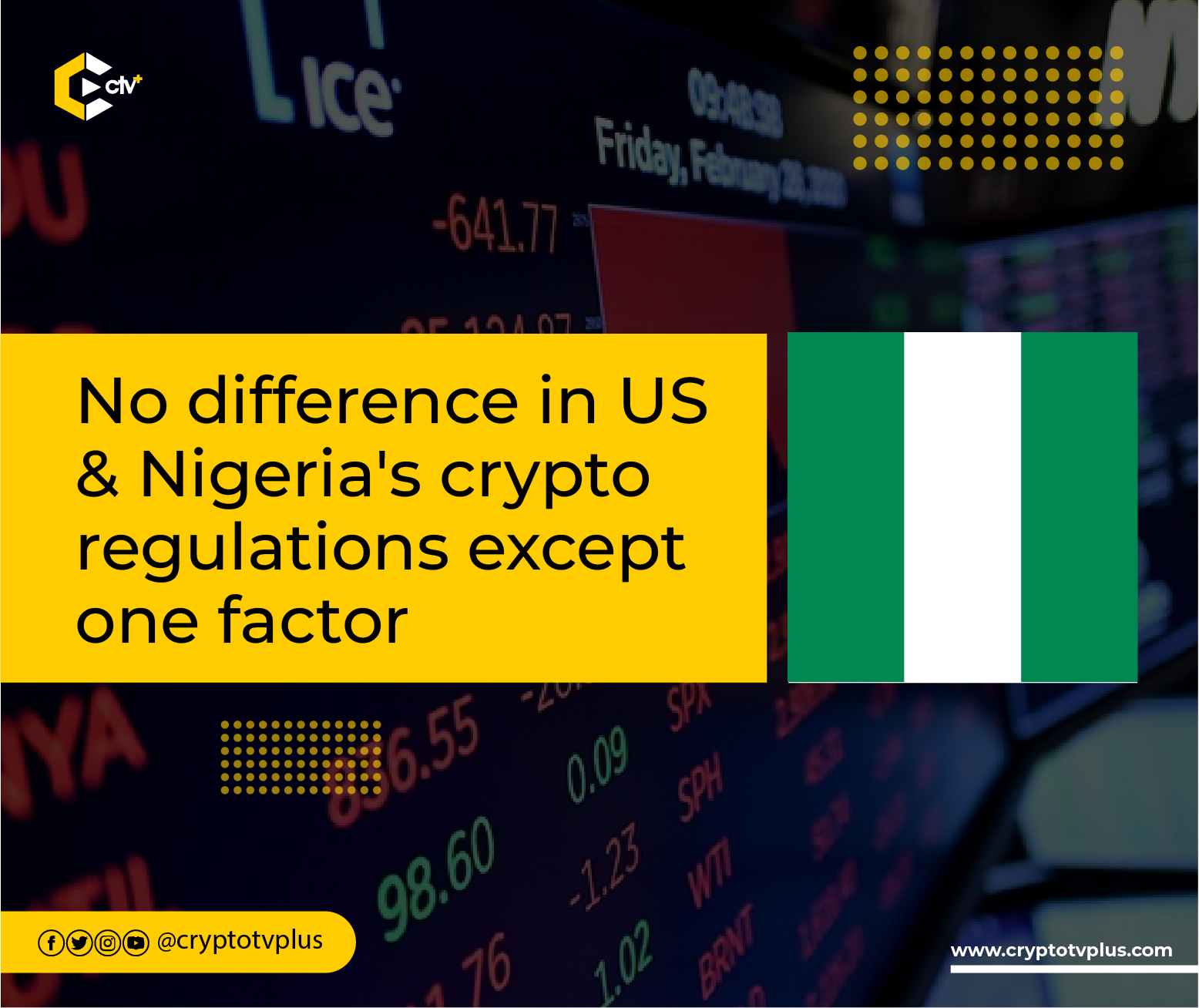FEATURED
No difference in U.S. & Nigeria’s crypto regulations except one factor

Cryptocurrency regulation has been a debated topic in the space, and countries like the U.S. have been making moves to regulate crypto; however, some crypto players seem to believe that regulation will do more harm than good or entirely defeat the purpose of decentralization. For a country like Nigeria, its apex bank gave instructions to financial institutions to disallow crypto transactions to flow through the system.
A legal Adviser Kue Barinor in an interview, compared the crypto regulation in Nigeria with the U.S. Taking two basic comparisons, he said, so far in the U.S., “there have been two sets of action; action by the Federal Reserve Bank and also the Securities and Exchange Commission, and the same is applicable to Nigeria.”
The United States Reserve Bank does not actually restrict the use of cryptocurrency within the financial or banking system; what it does, is to warn the banks on the risks associated with allowing cryptocurrencies or keeping their assets in crypto format, while the Nigerian CBN banned and stopped banks from allowing any form of transaction to crypto service providers, the legal adviser said.
“The Nigerian SEC has made several efforts to define and regulate the security aspect of cryptocurrencies, in U.S the SEC is going after cryptocurrencies and classifying them as securities discarding the howey test that defines what securities should be; this has created an uproar between the SEC and crypto service providers and has made the crypto space in the U.S. a lot more uncertain.”
Why crypto regulation?
Speaking about regulation in the interview, he cited the U.S President, where he said in his executive order, giving direction in the approach to regulating the crypto space, “while encouraging technology and innovations, you also prevent the bad actors from taking advantage of the system.”
As we are trying to make transactions easy, seamless and reduce censorship, it shouldn’t be to the extent where the system is completely lawless. That is why we must try as much as possible to marry regulation with the blockchain he mentioned. “Regulation is not coming as a bad actor; it will increase user confidence and crypto adoption,” the Legal Adviser Kue Barinor said.
He agrees that Nigeria’s crypto regulation is more rigid, seeing that the CBN placed a bar on businesses, where they will have to get a bank account for their businesses to exist. However, when stopped because of not owing a bank account, these businesses run away. He added that it couldn’t be said the U.S. is better than Nigeria.
The Nigerian SEC hasn’t started implementing its rules on digital assets, issuance, offering platforms, and custody. But the rule gave a clear definition, unlike what is happening in the US, Kue said.
Nigeria, however, has an area where it can be considered worse. According to Kue Barinor, “the only area where Nigeria is worse when compared to what is happening in the U.S. is that the central bank completely stopped everything crypto, which has a more far-reaching effect because businesses cannot effectively deal with owning a bank account.”
Read also;
Zimbabwe learns from eNaira, prepares to launch a CBDC
What do you think of this article? Share your comments below.

























Pingback: No difference in U.S. & Nigeria’s crypto regulations except one factor by Ifeoma Joy Okorie – CryptoTvplus Events: NFT, DeFi, Bitcoin, Ethereum, Altcoin Events